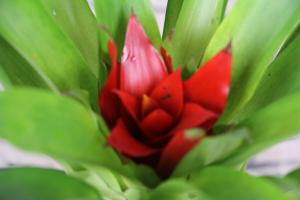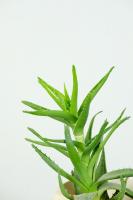What is the Best Plant Food for Olive Trees?
Olive trees are a beautiful and ancient species that provide a variety of benefits including delicious fruits and oil. Cultivating olive trees can be a rewarding experience but it requires some knowledge and experience in maintaining the health of the trees. Among the essential aspects of olive tree care is providing the best plant food that will support their growth and productivity.
The Nutrient Needs of Olive Trees
Like all plants, olive trees have specific nutritional requirements to ensure optimal growth and productivity. Olive trees prefer a soil pH of 6.0 to 7.5 and require macronutrients such as nitrogen, phosphorus, and potassium in moderate to high amounts. They also need micronutrients such as iron, zinc, copper, and manganese in smaller quantities.
The way in which the plant food is applied can also affect the tree's health. A slow-release fertilizer is often ideal to prevent over-fertilization that can lead to excessive vegetative growth and impact fruit production. It's also important to note that during the dormant season, a plant food with a higher nitrogen concentration may be beneficial, whereas during the growing season, a balanced fertilizer is more appropriate.
Organic Plant Food Options for Olive Trees
If you prefer organic options, you can opt for plant foods that are derived from natural sources such as compost, manure, or bone meal. These organic plant foods can provide a slow-release of nutrients that will improve soil structure and promote good root development. One area of caution when using animal-derived organic fertilizers is ensuring that it is thoroughly composted before use, to avoid the chance of transmitting harmful pathogens to the soil or plant.
You can also use plant meals such as alfalfa, soybean or cottonseed meal, all with high nitrogen content. Legume-based meals can also offer a significant source of protein, which is an important nutrient for olive trees.
Types of Synthetic Plant Foods for Olive Trees
Synthetic plant foods provide an easy and convenient way to provide the necessary macronutrients to olive trees. They are made from a combination of several minerals and nutrients that can be adjusted based on the tree's needs for the growing season. Some examples of synthetic plant foods that can be used for olive trees include triple 16, 10-30-10, and 20-20-20.
The triple 16 plant food is composed of 16% nitrogen, 16% phosphorus, and 16% potassium, which provides a balanced source of nutrients. The 10-30-10 plant food has lower nitrogen but higher phosphorus, which is ideal for the dormant season of the tree. The 20-20-20 plant food provides equal amounts of nitrogen, phosphorus, and potassium, which can help promote optimal plant growth during the growing season.
Conclusion
Choosing the best plant food for your olive trees can help support their growth, productivity, and overall health. The type of plant food you select depends on your personal preferences, growing conditions, and the specific needs of your plants. Whether you choose to use an organic source or a synthetic fertilizer, it's important to apply the plant food correctly and in the recommended amount to avoid over-fertilization or nutrient deficiency.

 how many times do yo...
how many times do yo... how many planted tre...
how many planted tre... how many pine trees ...
how many pine trees ... how many pecan trees...
how many pecan trees... how many plants comp...
how many plants comp... how many plants can ...
how many plants can ... how many plants and ...
how many plants and ... how many pepper plan...
how many pepper plan...































